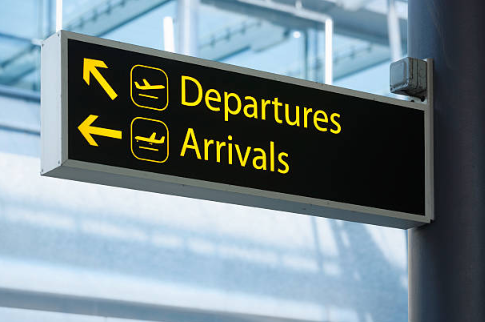Chagossian Arrivals in the UK and What It Means for Crawley Residents
On the 10th of June, 77 individuals arrived at Gatwick Airport from Mauritius seeking accommodation in the UK.
This event does not come as a surprise after the UK government launched a new British nationality route for individuals of Chagossian descent in November 2022, allowing them to “become British citizens free of charge, and to build their future in the UK should they wish to.”
To date, Crawley is the town with the largest community of Chagossians in the country, with approximately 3,500 people residing in this area—this accounts for two-thirds of the total Chagossians living in the UK.
The government forecasts that between 3,500 and 5,000 people currently living in Mauritius will take up the offer of citizenship. But why did the UK offer this opportunity to this specific community, and what does it mean for Crawley residents and service providers?
A Brief Context
The Chagossians are an exiled population of Indigenous people—and their descendants—from the Chagos Archipelago, an island group in the British Indian Ocean Territory (BIOT).
The Chagos Islands had been home to the Chagossians since the 1700s, when they were brought as workers by France from Africa and India. This continued until the United Kingdom forcibly expelled them from the archipelago at the request of the United States between 1967 and 1973 to allow the United States to build a military base on Diego Garcia, one of the main islands of the territory.
This expulsion was part of a secret operation between the two countries, and the UK falsely declared to the United Nations that Chagos had no permanent population.
The UK authorities expelled the population of Chagos in three stages. First, in 1967, they prevented those who had left the islands temporarily, on holiday or for urgent medical treatment, from returning. Those who, for any reason, had left Chagos were told that they could not return home and were separated from their families without any warning.
The subsequent phase, in January 1971, saw the BIOT administration instructing the remaining residents of Diego Garcia to leave the island. This directive was further emphasised by the British authorities' brutal act of killing the Chagossians' dogs.
The final stage, initiated in June 1972, instructed the departure of the remaining Chagossian populations from the other islands within the archipelago. By 1973, all Chagossians had been forcibly removed.
The UK government has since acknowledged its "shameful and wrong" treatment inflicted upon the Chagossians. Compensation has been distributed to some individuals through the Mauritian government. Decades later, the UK government also granted citizenship to the Chagossian population.
The Chagossian Diaspora
The Chagossian people, now numbering over 10,000, are scattered across several countries. Mauritius, the Seychelles, and the United Kingdom host the majority of the community, with Crawley being the focal point for the UK population. A smaller number of individuals reside in Manchester.
From a mix of African, South Indian, Portuguese, English, French, and Malay ancestry, the Chagossians developed a distinct cultural identity over the centuries. This heritage is reflected in their unique Chagossian Creole language, music, and traditions.
Unfortunately, while some descendants retain their ancestral tongue, many have assimilated into the dominant languages of their host nations – Mauritian Creole, Seychellois Creole, English, or French.
Newly Arrived Chagossians in Crawley
Crawley Borough Council recently issued a statement acknowledging the challenges faced by a recent influx of migrants from Mauritius. In February of this year, the council was the first in England to declare a Housing Emergency, which makes the challenge of allocating these migrants even harder.
All 77 individuals who arrived in mid-June underwent a thorough assessment based on established legal requirements, mirroring the process for any British citizen. This evaluation resulted in the allocation of emergency accommodation to 40 individuals.
The remaining 37 did not meet the criteria for housing assistance and lacked alternative options. In response, the council established a temporary rest centre.
However, it is important to acknowledge the broader context of this situation. The UK government's ongoing ban on Chagossian repatriation to their homeland significantly impacts this specific migrant group. Additionally, the designation of the Chagos Archipelago as uninhabited by the UK raises concerns about the application of international human rights and criminal law within the territory.
People around the world continue to fight for the rights of the Chagossian people to live with dignity and if they choose, return to their homeland.
Challenges and Considerations for Crawley Service Providers
The influx of Chagossian migrants presents unique challenges and considerations for public service providers in Crawley, Manchester, and other areas with Chagossian populations. Understanding cultural barriers faced by this community is crucial to ensure effective service delivery and cost-efficiency in the long term.
Developing cultural competency among service providers is essential to address these challenges. This includes recognising the diverse cultural backgrounds of the communities they serve. By doing so, service providers can ensure that all residents receive appropriate and culturally sensitive support.
For individuals with limited English proficiency, access to interpreters and translators is vital for clear communication. In healthcare settings, this can significantly reduce the risk of misdiagnosis by enabling healthcare professionals to understand a patient's medical history and symptoms accurately. This, in turn, can minimise unnecessary procedures, leading to cost savings within the healthcare system.
Vandu Languages has been working with local authorities in Southeast England for over two decades, consistently fulfilling our promise to help local minority communities. We provide translation, interpreting, and health and social care bilingual advocacy services to support their access to public, private, and third-sector services.
To learn more about our work and mission, please visit our website.

